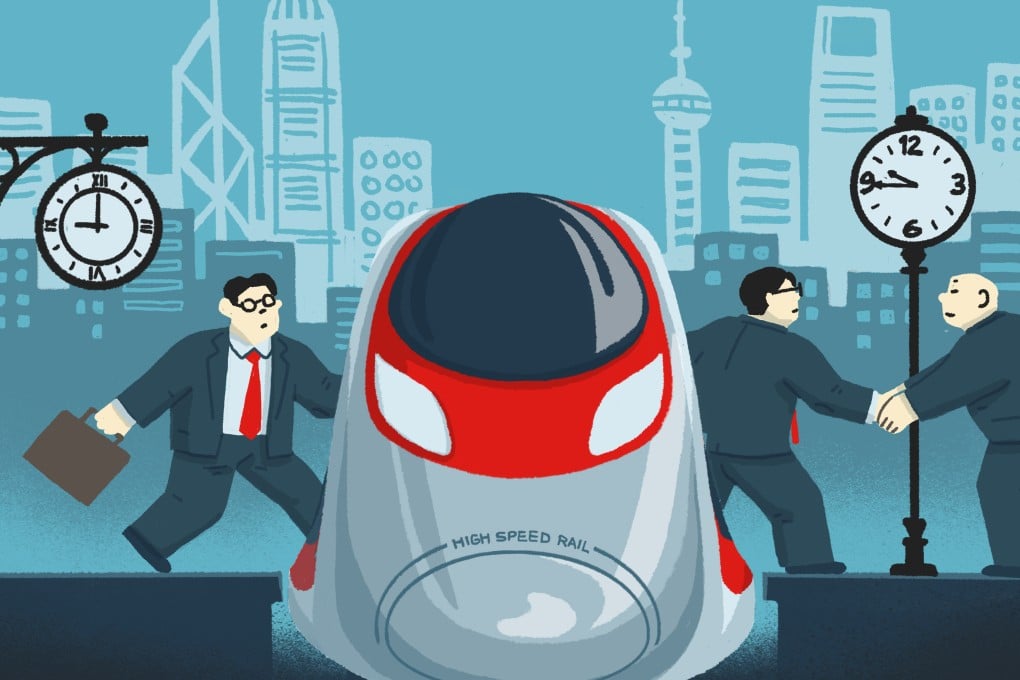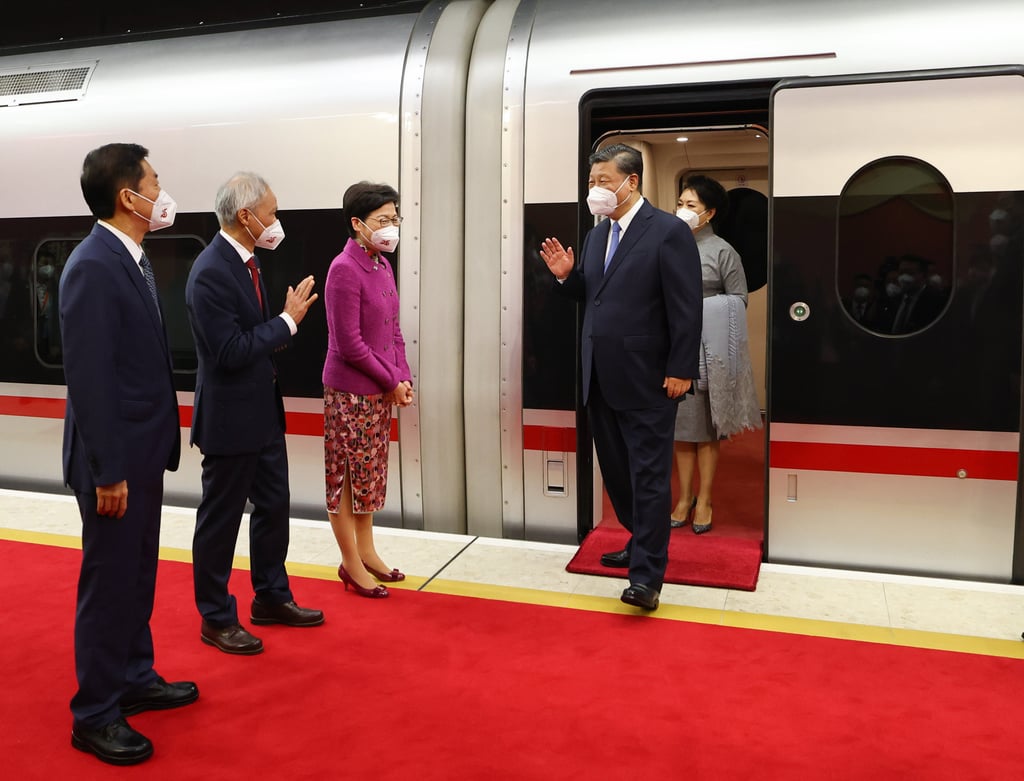How rail giant MTR Corp is moving Hong Kong closer to mainland China
- Expanding rail network plays a critical part in integrating city with Greater Bay Area and beyond
- Critics seeking quicker, more efficient delivery of rail services urge an end to MTR Corp monopoly

The Chinese leader arrived with his entourage on Thursday afternoon, returned to Shenzhen at the end of the day, and repeated the train journey on Friday for the second day of his visit.
It put the spotlight on Hong Kong’s railway service, which has grown significantly in the 25 years since the British returned the city to China.

From a network of 100km and four rail lines in 1997, sole rail operator the MTR Corporation now runs a 270km network with 10 lines serving Hong Kong Island, Kowloon and the New Territories, and a light rail network in Tuen Mun and Yuen Long.
It also runs the high-speed rail service which opened in September 2018, linking Hong Kong with Shenzhen and Guangzhou, reducing travel times and connecting the city to mainland China’s extensive rail network.
With Beijing’s ambitious Greater Bay Area development plan connecting Hong Kong, Macau and nine cities in Guangdong province to create an economic powerhouse, new railway links will play a key role in developing the northern part of the city and deepening integration with neighbouring Shenzhen.
However, critics called for competition to improve Hong Kong’s rail service, pointing to the MTR Corp’s record of project delays, cost overruns, service disruptions and glitches which they blamed on complacency arising from its monopoly status.